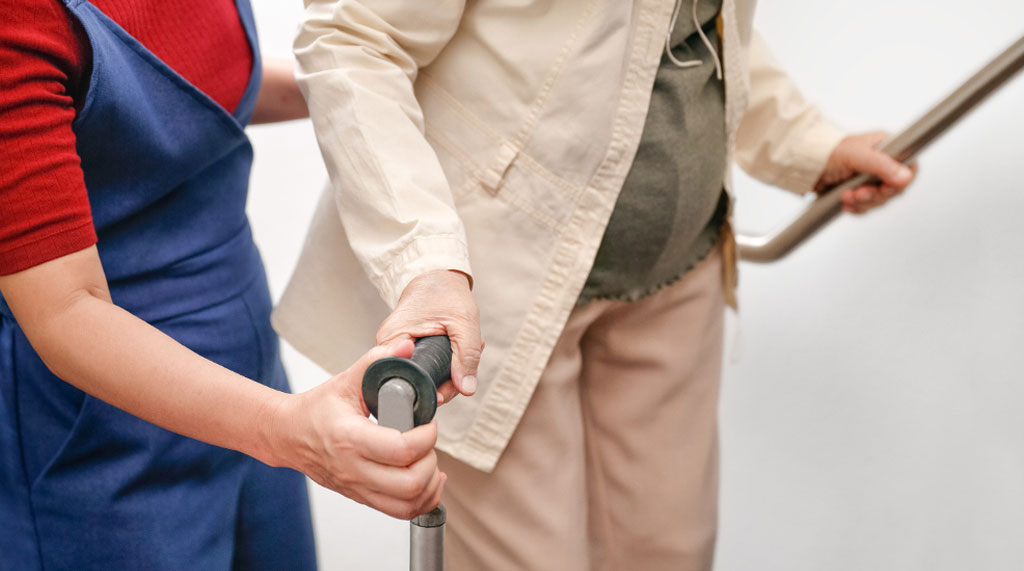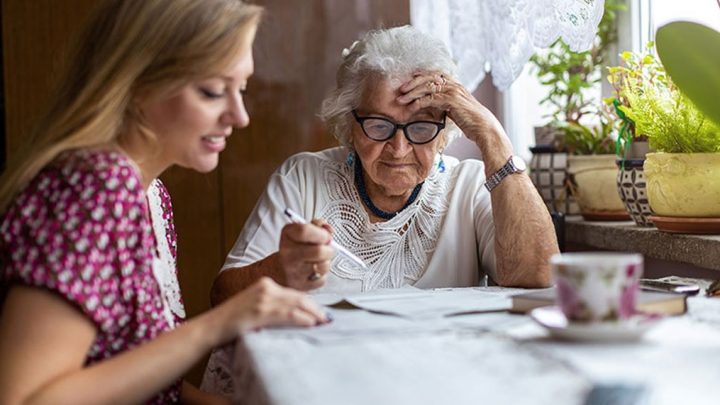There comes a time for most older adults when they require a safer, accessible environment and more support and care. Accepting that it’s time to make some lifestyle changes for health and safety is difficult. But avoiding that decision—or not seeking a sufficient level of care—may lead to accidents that trigger even greater loss of mobility, ability, and independence. Here we address preventing falls for older adults.
Every 13 seconds an older adult is treated for a fall in an emergency room in the United States. Falls can be fatal; every 20 minutes, someone dies from such incidents. Even a relatively minor fall can create a cascade of new health care needs and signal the start of progressive decline.
An estimated $50 billion is spent each treating elderly individuals after a fall or accident. Medicare and Medicaid pay for three-quarters of this care. Preventing falls can preserve health and reduce these health care costs.
Broken hips and surgical repairs are a common consequence of falls among the elderly. The fortunate may escape a fall with scrapes, bruises, and muscle injuries. In either case, the fall may require a stay in rehabilitation and physical therapy to regain strength.
However, even after rehab, chances are good the victim of the fall will not be as good as new and will need some lifestyle modifications or a greater level of care. As limited mobility restricts activity, other conditions and complications may grow worse.
There are steps to take to prevent such falls and the spiral of consequences that follow. A geriatric care manager (GCM) can provide expert assessment of an older adult’s living situation and capabilities.
Today, there are evidence-based falls prevention programs available through local senior centers, as well as guidance and resources on how to minimize the risk of falls. GCM care managers can point families to such resources and identify the best safeguards and tools for individual needs.
The risk of another fall is higher after the first, so it’s important to assess and treat potential causes. Because falls can be the result of an undiagnosed condition, an essential yet sometime overlooked step is to get a thorough medical assessment after the accident. A physician should look for an infection or dehydration, which can lead to low blood pressure and dizziness. Heart problems, mini-strokes, pneumonia, and anemia can cause general weakness and instability.
Vision problems can be the culprit in a fall; nerve damage or circulation issues that affect the feet and legs are also a risk factor. More serious neurological conditions such as Parkinson’s disease should be considered.
Some potential causes of falls are more readily correctible. Some medications can increase the risk of a fall; prescriptions should be reviewed to avoid overmedication and dangerous interactions. Low Vitamin D levels are common in people who can’t spend much time outdoors, and this can lead to weakened bones, making falls more dangerous.
When it’s difficult for seniors and their families to face the reality that it’s time to consider some changes to the living situation for safety’s sake, GCMS can help facilitate that discussion.
Despite awareness and prevention efforts, when falls do occur, they are by definition unplanned, sudden, and scary. They often leaving families scrambling to arrange rehab care and therapy, obtain equipment, arrange additional care, and handle dozens of other immediate needs. For a victim of a fall who doesn’t have family nearby to assist, the many decisions to make can be even more overwhelming.
The aftermath of a fall is a time when the expertise of a trained GCM can be very useful.
Often the situation becomes the catalyst for beginning to consider longer-term needs. Each situation is unique and often filled with uncertainty about what services really are needed and what the future brings.
They can outline the options and levels of care in different living situations, recommend reliable in-home assistance, advise on the availability and cost of necessary care, and help identify sources of financial assistance.
If needed, a care manager will oversee and coordinate multiple providers and services and help families prepare for future needs. They can attend care conferences, serving as an advocate, coordinating care, and making sure essential questions are asked and answered.
The skilled and caring GCMs at Senior Support Solutions can help work with older adults and families to assess risks of falls and recommend preventive steps. And if the worst happens, they are available to help in a crisis and line up necessary care.
Contact us at 623-249-3927 or info@srsupportsolutions.com to arrange a consultation.




